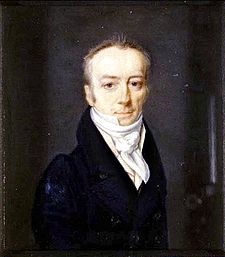What you never knew about the Smithsonian

VulcanSpirit
Richard & Alison Brunstrom
Mon 14 Nov 2011 17:37
|
The Smithsonian Institution, as everybody knows, is
the biggest museum complex in the world and a world reknowned research centre.
It is vast, and wealthy, and its museums in Washington DC, all open to the
public free of charge are truly magnificent - they put British museums in the
shade, and humiliatingly so. It is worth going to Washington just to see them.
Look at www.si.edu
 James Smithson FRS MA c1764-1829 James Smithson FRS MA c1764-1829The Smithsonian resulted from a bequest by James
Smithson who said in his will that if his heir James Hungerford was to die
without heir then his fortune was to go to the governmentof the United States to
create "an Establishment for the increase & diffusion of Knowledge among
men". Smithson died in 1829 at the age of about 65 (not 75 as his
sarcophagus states); Hungerford without heir in 1835 and his fortune (104 960
gold sovereigns, or $10m at 2008 prices) duly went to the US government in 1836;
the Institution was founded in 1846.
But Smithson was English, and never set foot in the
United States. He never knew of the astounding consequences of his bequest
which have surely outstripped his wildest dreams.
He was born in 1764 or 1765 in Paris as Jaques
Louis Macie, the illegitimate and unacknowledged son of Hugh Smithson, 4th
Baronet of Stanwick North Yorks, and later 1st Duke of
Northumberland. He changed his name to Smithson on the death
of his mother, became independently extremely wealthy through shrewd
investments, and was one of the leading scientists of his era, specialising in
mineralogy and chemistry. He published at least 27 scientific papers, invented
the term 'silicate' and was elected the youngest ever member of the Royal
Society at the age of 22.
But why did he leave his money to the US
government? We will never know - almost all his papers were destroyed in a
disastrous fire at the Institute in 1865, but an Institute publication in
1857 gives a clue - he apparently had stated in writing "that though the
best blood of England flowed in his veins, this availed him not, for his name
would live in the memory of men when the titles of Northumberlands and Percies
(sic) were extinct or forgotten".
In any event his magnificent gesture has
established the world's best museum, for which we should all be truly
grateful.
|